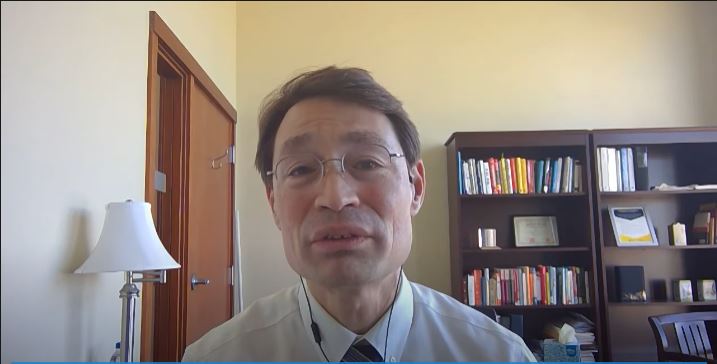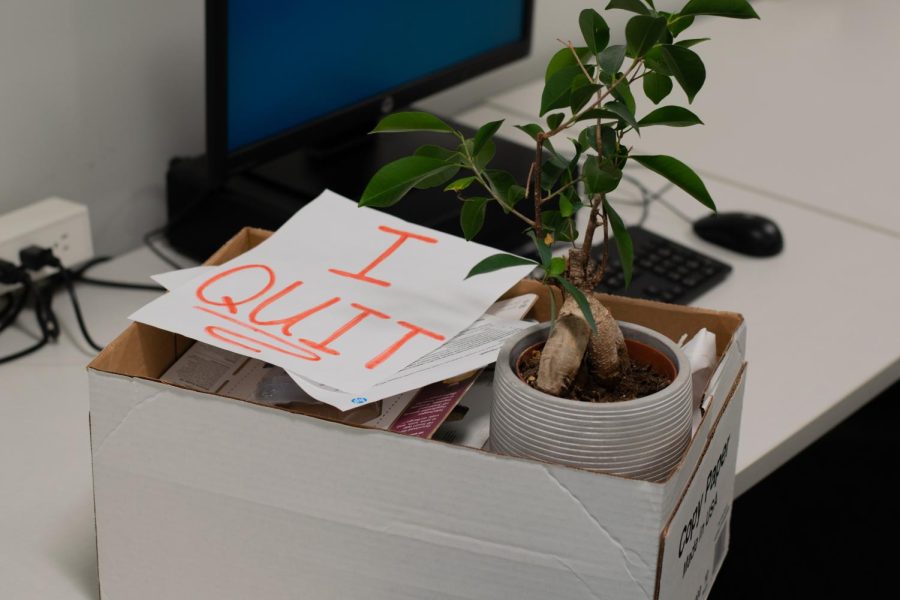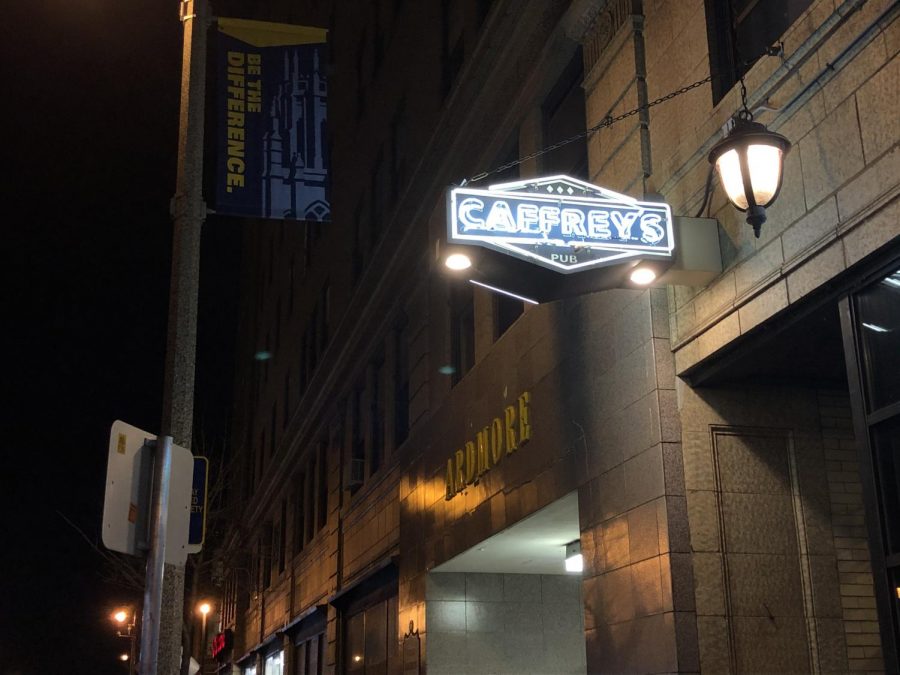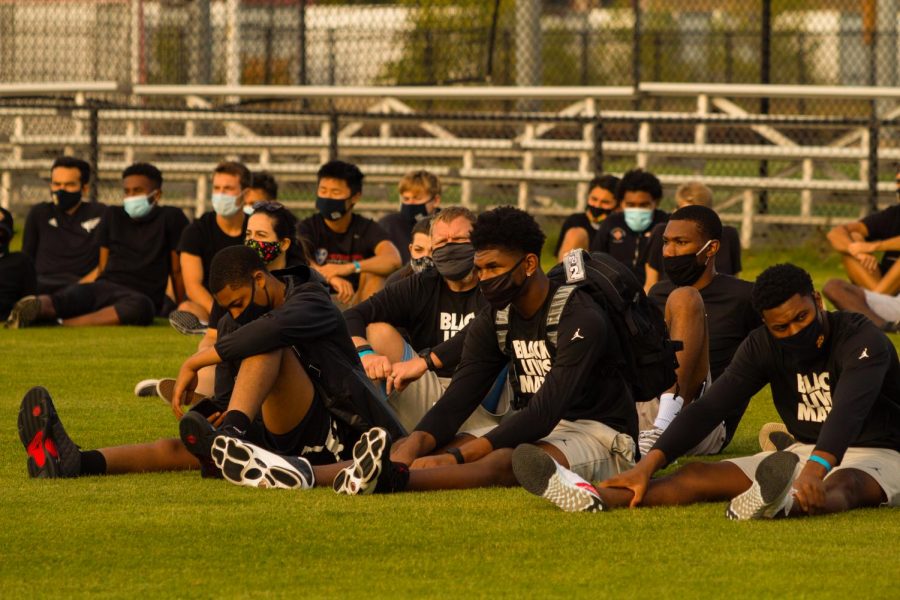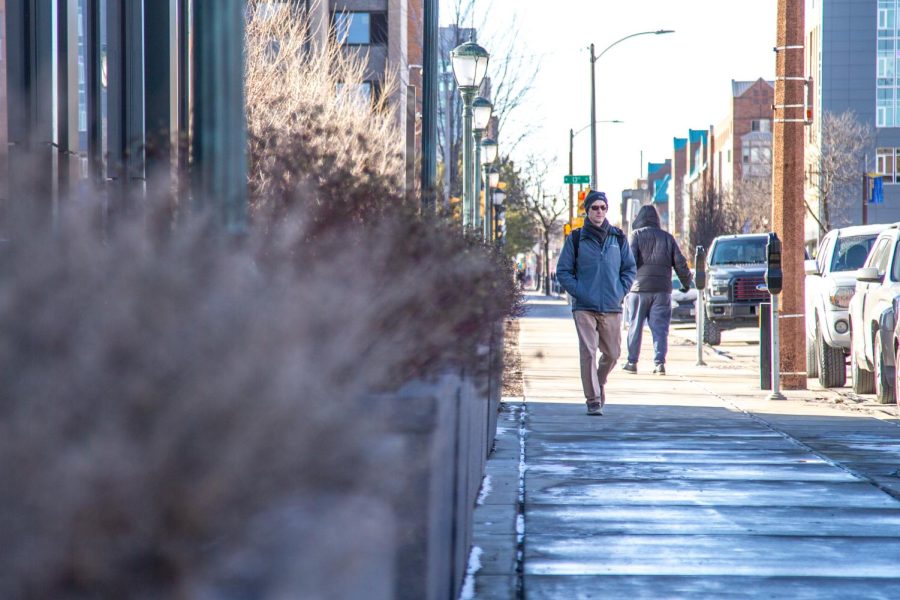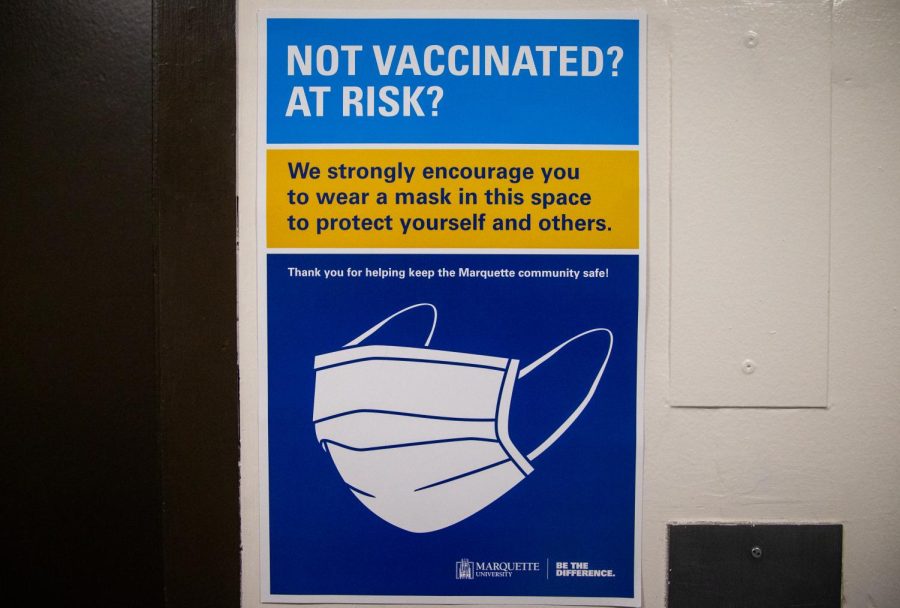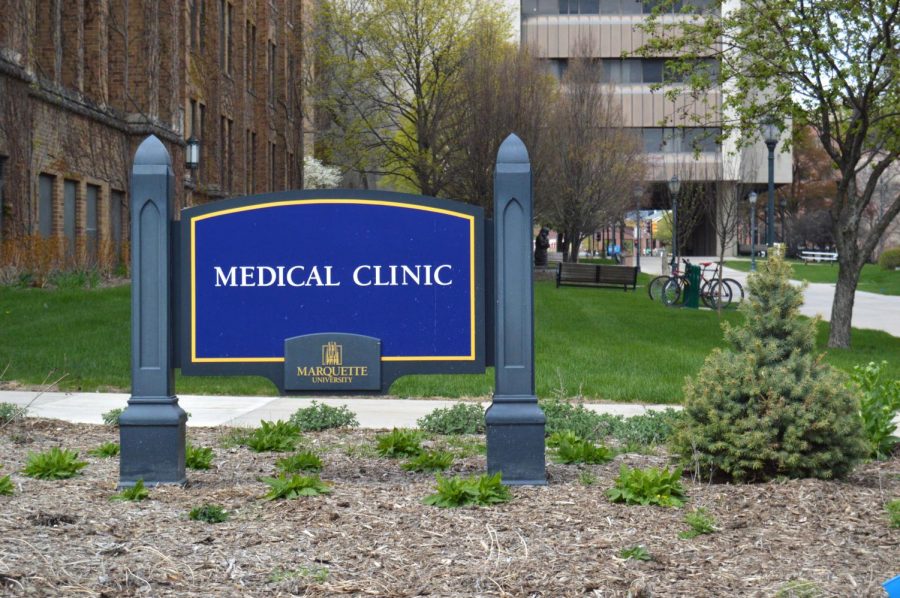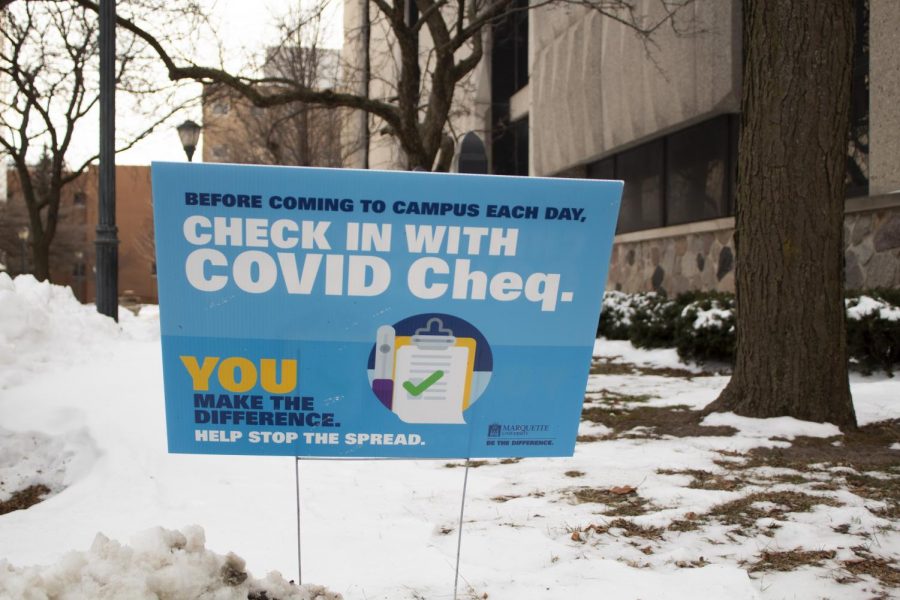Marquette University leaders hosted their last town hall related to their response to the coronavirus pandemic before the start of classes, this time focused on step 4 of reopening campus and discussing plans related to the fall 2020 semester.
The previous step 3 allowed limited employee presence for summer operations with focus on social distancing practices, de-densification and cleaning and disinfection of all campus buildings. The move into step 4 focusses prepares for the mass return to campus this fall semester. This would allow campus to be “fully operational” in accordance with the city of Milwaukee’s guidelines, according to a university news release.
The event began with an introduction from Xavier Cole, vice president for student affairs, who explained the importance of following the rules that have been set by Marquette in order to keep everyone on campus safe.
Lora Strigens, vice president for planning and facilities management, gave an overview of Step 4 of the Recovery Plan.
The plan includes guidance for the fall semester regarding topics such as campus events, student life, cleaning and disinfection and resources for faculty and staff.
Strigens said that the objective of Marquette’s COVID-19 response was to maintain a commitment to Marquette’s Jesuit mission, to mitigate the spread of COVID-19 on campus and broader communities and to minimize the pandemic’s financial impacts on the university.
Faculty and staff will take a pledge before their arrival on campus. The pledge states that community members must “align (their) behaviors in the areas of Health and Wellness, Campus Movement, Guests and Travel, and Social Life and Recreation, with the actions and activities specified in the Community Standards,” according to Strigens.
She also said that all students will be required to take a “SafeColleges” course related to COVID-19 that must be completed by August 19th. Students will be able to access the course through an email sent to them on Monday.
COVID Cheq will become a staple of life for all community members next year, Strigens said. COVID Cheq is a daily screening service that will ask faculty, staff and students to submit their temperature and complete daily symptom checks. This service will also help with future contact tracing, according to the COVID Cheq website.
Kelli Wollmer, Executive Director of the Marquette Medical Clinic and head of the medical sub-committee of the COVID response team, said that the university will be providing a “welcome kit” for all students living in on campus residence halls and will be “at several locations throughout campus for pickup” according to a university news release. The welcome kit will include a Marquette branded cloth mask, digital thermometer and hand sanitizer.
Disposable face mask distribution sites will also be set up in residence halls, the AMU and Zilber Hall and will be handed out through MUPD officers.
Wollmer also said that Marquette’s on-campus testing center is in its final stages of development and will be ready for students’ return to campus. It is not known at the moment where this is located.
Testing will not be required for students upon their return to campus because of the low quality of nationwide tests, Wollmer said. She said that some students may be pre-symptomatic or asymptomatic and come back with negative tests.
She also went over the plan for students who do become infected with COVID-19 or come into contact with an individual who has tested positive. She said the university will have designated quarantine and isolation areas for students in residence halls, and local students will have the option to return home. Wollmer encouraged all students to go over a plan with their family should they have to isolate or quarantine. Students living in on-campus and private apartments will have the option to isolate or quarantine themselves on campus if they are unable to make it home.
Members of the Marquette community will also be able to keep track of the number of cases on Marquette’s campus through Marquette’s Coronavirus Dashboard.
Community members will also be asked to fill out a “voluntary disclosure form” online if they choose to self quarantine or isolate in order to help with contact investigation for the city of Milwaukee.
Following health and safety guidelines, Vice Provost John Su went over academic life and statistics for the fall semester.
Su said that 61% of classes will involve in person instruction. Of in-person classes, 43% will have fewer than 10 students and 82% will have fewer than 20 students.
”We’re trying to maximize that small face-to-face learning we all value,” Su said.
Su also said that only 3% to 7% of undergraduate students will be taking fully online classes. Academic support will be virtual for all students. Academic support would include tutoring for students that would have usually been in-person.
Professors will help students navigate classwork and adjust to personal needs if students need to leave campus, according to Su.
”This will not be the fall semester we envisioned,” Su said. “But our faculty and staff have exceptionally prepared to prioritize a pedagogical experience.”
Executive Director of Housing and Residence Life Mary Janz then overviewed the changes to on-campus living.
She said that residence halls have been adjusted to no longer allow large furniture such as futons because such furniture allows extra seating which will only promote room visitation, which is prohibited. Additionally, all beds must now be lofted and have a minimum of 12 feet between students’ heads while sleeping.
Some residence halls have also established capacity limits in common areas as part of the university’s de-densification efforts, Janz said. External and inter-hall visitors will not be allowed, though this is subject to change.
Dining halls will also include more online ordering options and will have reduced seating capacity to accommodate the City of Milwaukee’s standards.
Move-in for residence halls will also take Aug. 22-25. Residents will only be allowed two guests to help with moving in during the 90-minute slots they signed up for last month.
This story was written by Ben Wells. He can be reached at benjamin.wells@marquette.edu.

